Search Results
Showing results 161 to 180 of 199
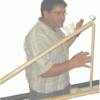
Beating Gravity
Source Institutions
In this demonstration, learners watch as a device drops a ball into a cup without touching the ball or cup, even though the ball and cup are virtually side-by-side.
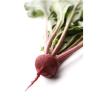
Membrane Permeability with Beets
Source Institutions
In this lab exercise, learners explore diffusion, cell membranes and particle size using beets and three alcohols.
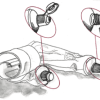
Jump Into Design: Understanding the Design Process
Source Institutions
In this series of activities (page 5), students are introduced to the design process.
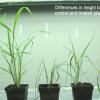
Effect of Environment on Plant Growth
Source Institutions
The purpose of this plant biotechnology activity is to demonstrate the effect of changes in the environment on the growth and fertility of landscape grasses and crop grasses such as wheat and rice.
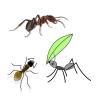
Insect Collection
Source Institutions
Learners use several types of insect sampling and collection equipment to make an insect collection. Learners can collect insects from their schoolyard or yard at home.
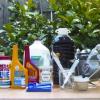
Backyard Biodiesel
Source Institutions
In this activity, learners make a small batch of biodiesel that will work in any diesel engine. Learners use an old juice bottle as a "reactor" vessel to chemically process vegetable oil into fuel.
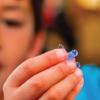
Delivery Capsules
Source Institutions
Learners make self-assembled polymer spheres as a model for the lipid nanoparticles found in COVID-19 mRNA vaccines.
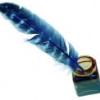
Get It Write
Source Institutions
In this activity, learners explore how pens have been engineered and re-engineered over time. Learners work as a team to develop a working pen out of everyday items.
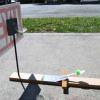
Parabola Basketball
Source Institutions
In this activity, learners build mini-basketball courts and explore the laws of physics. Learners discover that everything you throw or shoot on earth travels in a parabola.
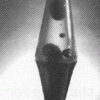
Lava Lamps
Source Institutions
Learners observe working lava lamps to understand how they work (included in PDF link).
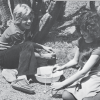
Desert Water Keepers
Source Institutions
In this outdoor, sunny day activity, learners experiment with paper leaf models to discover how some desert plants conserve water.
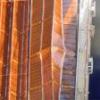
Folding Matters
Source Institutions
In this activity, learners explore how the process of folding has impacts on engineering and is evident in nature.
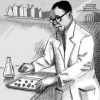
Forgotten Genius
Source Institutions
This series of chemistry stations is designed to accompany the PBS documentary about African-American chemist "Percy Julian: Forgotten Genius." Each of the six stations features either a chemical or p
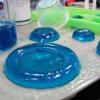
Casting and Molding
Source Institutions
This activity was designed for blind learners, but all types of learners can explore the process used to cast and mold molten metal, glass, and plastics.
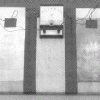
Human Battery
Source Institutions
Learners place their hands on different metals and use an ammeter to monitor the flow of electricity from one metal to another.
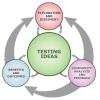
Poking Around: Having Students Experience the Real Process of Science
Source Institutions
Using indirect methods, learners determine the shape and size of a piece of carpet hidden under a piece of plywood.
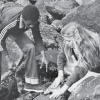
Rock Pioneers
Source Institutions
In this outdoor activity/field trip, learners investigate organisms that live along the ocean's rocky coast.

Newton's 2nd Law: Inquiry Approach
Source Institutions
In this lab activity, learners act as fellow scientists and colleagues of Isaac Newton. He has asked them to independently test his ideas on the nature of motion, in particular his 2nd Law.
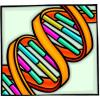
Chromosome Shuffle
Source Institutions
Role-playing the parts of chromosomes and centrioles, learners use large chromosome models and nylon cords (spindle fibers and cell membranes) to walk through the processes of mitosis and meiosis.
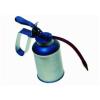
Pesticides and Eggshell Thinning
Source Institutions
This lab activity is about toxic substances like pesticides and their effects on biological systems. The activity starts with an introduction of how birds sequester calcium to make an egg.
